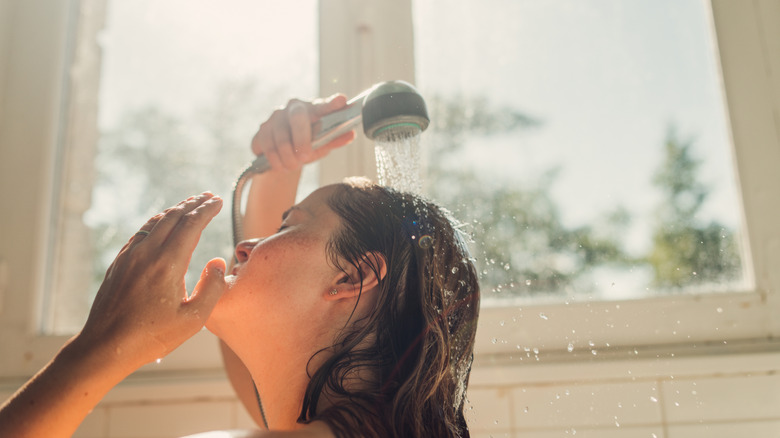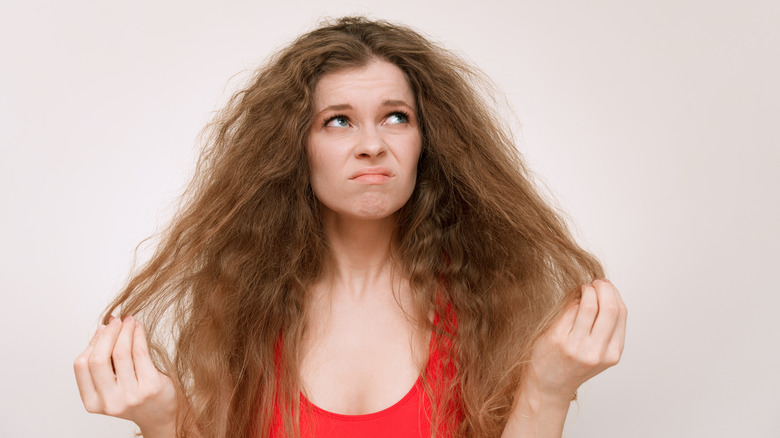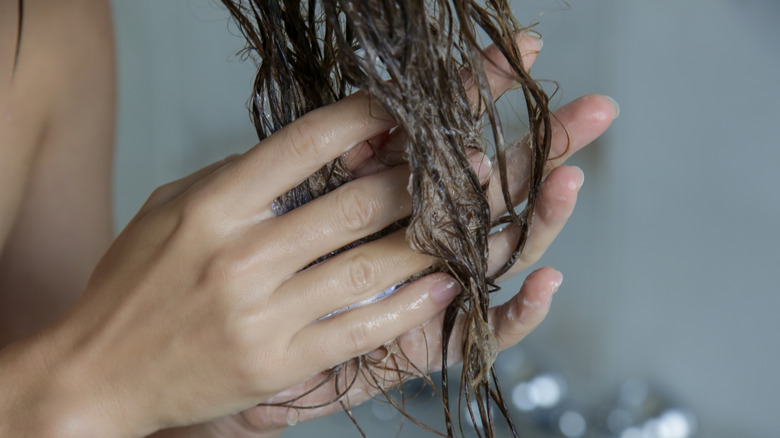Say Goodbye To Your Summer Hair Worries - We're Giving You All The Tips To Keep Your Strands Healthy
If you're planning on swimming in salty ocean seas and basking in the summer sun, you probably already know you need to wear sunscreen. But did you know you should also take extra effort to protect your hair? From chlorine and UV rays to tangled, salty hair knots, and even the accumulation of sweat in higher temperatures, some of the most adored summer-season activities can wreak havoc on hair health, causing major damage, breakage and a duller, dryer appearance.
Given the increased activity, it's no wonder some specialists have even noticed a correlation between minor hair loss and the summer season. "I can confirm clinically that seasonal hair shedding does exist and is much more common than we realize or has been studied," Dr. Jodi Logerfo, a hair loss specialist, told Coveteur in 2021. Ahead, let's browse hair tips that can salvage your strands from common summer ailments and help keep your hair worries at bay.
Nourish your hair from the inside
When you first notice thirst-quenched strands, your first inclination might be to run out and get a moisturizing hair mask. While those certainly help (masks are even included in this list!), one of the most powerful things you can do to keep your hair healthy is, unfortunately, not a quick fix: drink lots of water and take a supplement. Over time, these habits will nourish your hair from the inside out.
The old adage of eight cups of water a day is a sweeping generalization. The amount of water you should actually consume is tied to a number of factors, including weight, height, exercise level, outdoor temperatures, and more. The University of Missouri has a handy calculator that helps those who want to be more precise about H2O intake. When it comes to vitamins, try to find a supplement that is rich in biotin, which stimulates the body's natural production of keratin and can increase blood flow to the scalp.
Switch up your shower routine
During summer months, you might sweat more and naturally produce more oil in the scalp. Alternatively, you might be swimming regularly and end up with chlorine or salt-soaked strands. Regardless of specifics, it's not uncommon to need more showers as the outdoor temperatures rise, and too-frequent washing can dry out the scalp and leave hair feeling brittle — this is especially true if you're washing your hair in hard water or hot water.
"When hot water is used to wash hair, your hair follicles are exposed to environmental and oxidative damage, which can lead to hair fall. Hair fall accelerates due to the loosened grip of the damaged hair roots," dermatologist Hasan Banar tells Byrdie. If you're not a fan of cold showers, mixing up the water temperatures can help mitigate some of the damage while still giving you the benefits of a warm wash. Try shampooing and applying conditioner to your hair in lukewarm water, but then wash out your conditioner in a cooler temperature to seal the pores closed. Reducing use of hot tools can also help — but that's a bit of a no-brainer.
Fight the frizz in humid weather
Nothing ruins the perfect blowout like humidity. In case you're curious, there's actually a scientific explanation for the way hair strands react to added moisture: humid air causes hydrogen bonds to form between water molecules and hair proteins, causing the shaft to swell. It all has to do with one of the keys to hair health: the protein-moisture balance. While there is no easy solution to fix hair hazards caused by environmental stressors, there are a number of hacks you can employ to temporarily tame your locks.
For humidity-caused frizz, the most viral of them all is a dryer sheet. Simply swipe the cloth atop your hair, and you'll find that your strands suddenly are slicker, more coiffed. This hack began trending last year and it actually works, provided you don't mind your hair smelling like fresh laundry or reswiping several times throughout the day. If you have a special event or are looking for longer-term results, a keratin treatment works wonders. Alternate routes to fight the frizz include using a frizz-fighting shampoo and conditioner for thicker hair, or volumizing shampoo and conditioner for locks that appear more flat when hit with humid temps.
Get the right hair mask
A deep moisturizing treatment is a quick way to keep your hair in good shape throughout the summer. There are many to choose from, but the Amika Soulfood Nourishing hair mask has top-notch reviews, as does Olaplex's No.8 Bond Intense Moisture mask. A little of each goes a long way, especially if you stick to the recommended once-a-week regimen. Hairstylist Hiral Bhatia tells Vogue India that selecting the right conditioner for the texture of one's hair is key. "For someone with dry and fine hair, I recommend a gel-based conditioner that's moisturizing yet not super heavy," Bhatia advises. "A cream-based conditioner is apt for dry, coarse hair. If your hair is particularly damaged, look for labels that promote repair, frizz control. Terms like volumizing, light or balancing are good for oily tresses."
There are also ways to enhance the effectiveness of your hair mask. Adding a few drops of diluted rosemary oil to the scalp has been shown to help with hair regrowth, for example. You can also give the mask a boost by wrapping your head in Saran wrap for the five or so minutes it takes to soak in; doing this will bring natural warmth to the strands, making them more susceptible to the nutrients within the mask or oil. Traditional oiling treatments can be an act of self-care, so if you didn't purchase that mask before, now's a good time. Just be sure to pick up some supplements and bring a water bottle with you.




